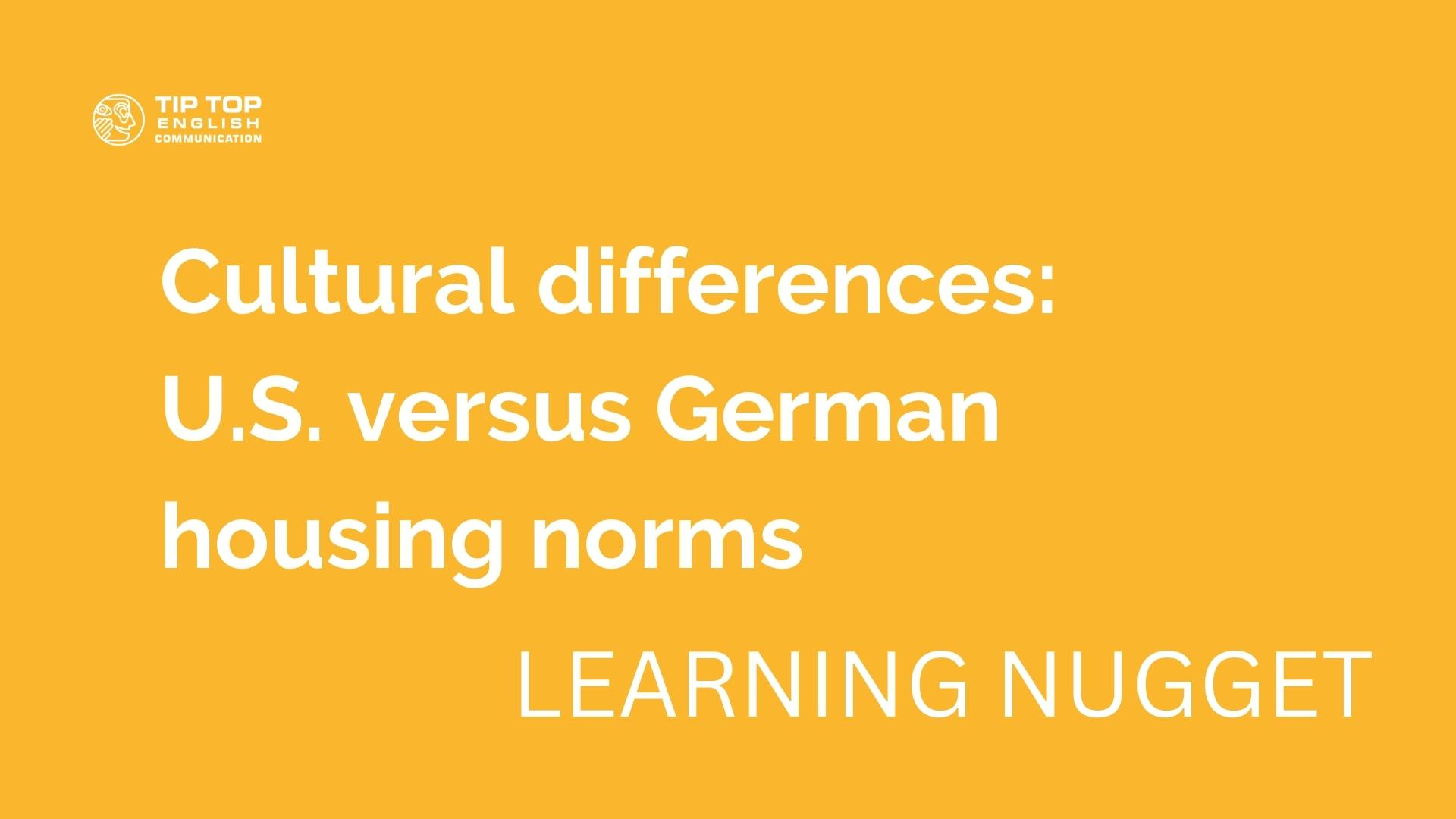No Rolländen and unlocked doors
If we asked you to think about cultural differences between Germany and the United States, we’d expect your ideas to revolve around language, food, or how willing people in each culture are to talk to strangers.
Some things you probably wouldn’t think about: How windows work and whether or not doors lock automatically when you close them. But these cultural differences are very real and very surprising to anyone visiting the other country for the first time.
Window weirdness
Germans are used to having options with their windows. Turn a handle to the correct angles, and you can tilt them just a bit or open them wide like a door.
Ask an American visiting Germany for the first time to open or close a window, and you’re in for a bit of fun as you watch them confusedly try to figure out what to do (or a scare when your window looks like it’ll fall off its hinges). That’s because most windows in the U.S. are nothing like those in Germany.
In the States, windows don’t usually have handles and are constructed with a stationary upper half and mobile bottom half. The bottom half doesn’t tilt or open like a door, though. Instead, it’s designed to be slid up (open) and down (closed).
Another big difference is that Rollläden are used so rarely in the U.S. that there’s no commonly-used word for them. Though „blinds“ is the best equivalent, most Americans use „blinds“ to talk about something that blocks light or unwelcome eyes from inside a home. Typically, these work with a string-and-pulley system.
Something else extremely common in the U.S. is for all windows to have screens that stop insects from flying into homes. These have become increasingly popular in Germany, but they’re still not the norm. It’s also common for U.S. homes to have screen doors in front of other, more sturdy doors.
Door differences
One of the biggest things Americans have to get used to in Germany is how front doors automatically lock any time they click shut. While German doors typically have handles that only help pull doors open and closed, U.S. doors tend to have knobs that turn to open the door latch. Most of the time, the knobs still open doors even after they click shut unless you intentionally lock them with a key.
The typical U.S. door allows you to firmly close it while you go outside to take out the trash, get the mail, etc. but then open it again without needing a key. To do this in Germany, you usually have to flip a small switch Americans have no idea is there.
So if you have an American neighbor or guest, don’t be surprised if you find them locked outside in their pajamas because they closed a door and didn’t know they needed a key to open it again.
Are there cultural differences you’d like us to explore?
It can be very comforting to know small nuances about a foreign place or to be aware of what will surprise guests from other countries.
If you have questions about cultural differences between Germany and an English-speaking nations you’d like us to explore in an upcoming Learning Nugget, please reach out to us at info@tip-top-english.de.
Vocabulary
expect – erwarten
to resolve around – sich drehen um
willing – bereit, willig
strangers – Fremde
how sth. works – wie etwas funktioniert
lock automatically – automatisch abschließen
surprising to – überraschend für
weirdness – Verrücktheit, Seltsamkeit
be used to having ( used to + verb in ing-Form) – gewohnt sein zu haben
turn to an angle – in einen Winkel drehen
handle – Klinke, Griff
angles – Winkel
tilt – kippen, neigen
confused(ly) – verwirrt
figure out – herausfinden
scare – erschrecken
fall off – hier: herausfallen, herunterfallen
hinges – Scharniere
stationary upper half – befestigte obere Hälfte
slide up (slide – slid – slid) – hier: hochschieben; rutschen
commonly-used – gebräuchlich
string-and-pull-system – Seilzugsystem
common – üblich
screen – Gitter (fly screens – Fliegengitter)
sturdy – stabil, robust
knob – Knauf
door latch – Türverriegelung
intentionally – gewollt
firmly – sicher, solide
mail – Post (amerikanisch)
explore – erkunden
be comforting – tröstend sein
nuances – Nuance, Feinheit
be aware of – sich im Klaren sein
Excite Your Senses

On our YouTube channel, you can follow along as a native speaker reads this month’s Learning Nugget accompanied by music and pictures.
